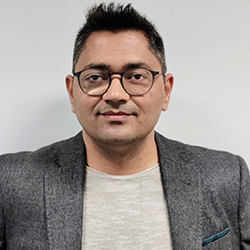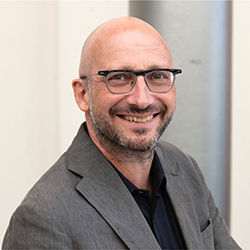Flemish Institute for Technological Research
The Flemish Institute for Technological Research (VITO), founded in 1991, is a leading European independent research centre in the areas of cleantech and sustainable development, elaborating solutions for the grand societal challenges of tomorrow: climate change, food security, a sustainable energy supply, the ageing population and scarcity of resources. The business unit of Separation and Conversion Technology is composed of ca.120 staff and has organized its strategic research program around the theme ‘Sustainable Chemistry’ with special focus on (1) process intensification through the integration of separation processes with chemical, microbial, enzymatic and electrochemical conversion processes, and (2) the use of alternative feedstocks, such as CO2
Electrochemistry Excellence Centre (ELEC)
The “Electrochemistry Excellence Centre (ELEC)” has a strategic focus on sustainable electrochemistry aiming for novel electrocatalysts and their integration into advanced reactors. The research team excels due to the combined expertise of material development, electrochemistry and engineering. The team members have a lot of experience in resource recovery, electrosynthesis and fuel cell/electrolyzer development and testing. Traditionally, the research focus at the group has been development of low cost and efficient electrodes and membranes. The VITO proprietary gas diffusion electrodes (GDEs) primarily developed for Microbial Fuel Cells are considered as the current state of the art and are currently being revised to deploy similar architectures for CO2 conversion processes. Since few years, the group started activities in Electrosynthesis field with projects on conversion of CO2 to ethanol, methanol, formic acid, electroconversion of biomass and conversion of acids to alcohols and production of nanomaterials. The lab has participated to several EU projects in the EU framework programmes, coordinating also some of them. The group is composed of six senior research staff members and about twenty PhD and post-docs with specialization in chemistry, material development, separation processes and electrochemistry in order to have an interdisciplinary approach. Within ECOMATES the group will develop and upscale bimetallic electrocatalyst & gas diffusion electrodes (GDEs) for electrochemical CO2 reduction. These catalysts will be also simulated by ab initio methods to understand their working mechanism and improve their performances.
Research Team
The group involved in ECOMATES is composed by two senior staff members beside some post-docs and technical staff. The team is expert in the material development, electrochemistry and engineering and, within ECOMATES, will host and supervise DC8. The senior researchers composing the team are:
 |
Deepak Pant, Senior Scientist at ELEC leads the research linked to electrochemical conversion systems with a focus on CO2 conversion and their combination with separation systems. He is the WP3 leader dealing with CO2RR electrolyser design and testing and has experience in the development and upscaling of electrodes and reactors, in particular with applications in electrochemistry.
|
 |
Jan Vaes is Program Manager for ELEC and leads a team of 30 researchers and technicians. He has extensive experience in engineering electrolyzer systems and will guide the electrode and cell developments in ECOMATES.
|
Infrastructure
The “Electrochemistry Excellence Centre (ELEC)” is well equipped with state of art infrastructure necessary for the synthesis, characterization and engineering of electrocatalysts, electrodes, membranes, cells and stacks. In the framework of ECOMATES, main facilities consist of several analytical tools (Differential electrochemical mass spectrometry, Raman, SEM and AFM). Extensive equipment for electrochemical testing is available for ECOMATES such as Electrochemical cells (with electrode surface areas from 1-10-300 cm²), 50 Potentiostat channels and a state of the art production facility at TRL 6 for making gas diffusion electrodes which are ideal for CO2 electroreduction experiments .

